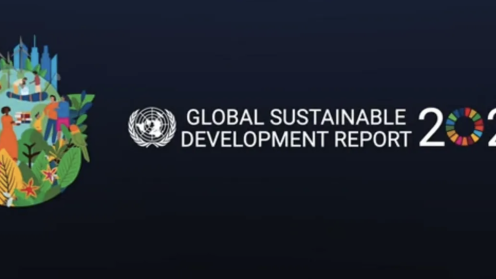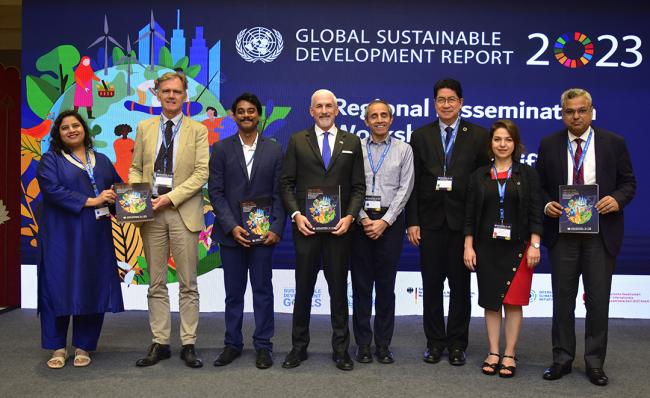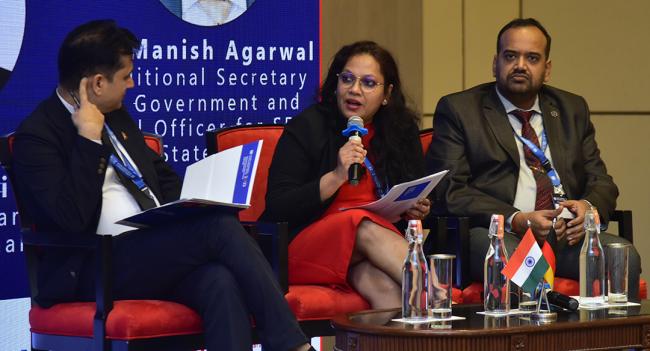About
The GSDR compiles scientific and other evidence on transformations and provides a framework for assessing, managing, and accelerating transformations that can inform the development of national plans for integrated SDG implementation and monitoring. A recent workshop aimed to deepen knowledge of the GSDR's applicability in the Asia and Pacific region.
Final report
Summary report 22–24 October 2024
All coverage
The Global Sustainable Development Report (GSDR) compiles scientific and other evidence on transformations and provides a framework for assessing, managing, and accelerating transformations that can support integrated and accelerated SDG implementation. The second GSDR, released in 2023 ahead of the second SDG Summit, found that transformations are both possible and inevitable. It calls on countries to use the transformation framework consisting of the six entry points for transformation, five policy levers, and transformation curve, to accelerate the shift towards sustainable systems.
To amplify this message and stimulate discussions on how the GSDR framework can be applied in national decision making, the Asia-Pacific Regional Launch and Dissemination Workshop of the 2023 GSDR brought together representatives from governments, civil society, and academia to share experiences and discuss practical applications to support SDG transformations.
In a series of high-level panels, presentations and working group sessions, participants learned about the core elements of the GSDR framework and discussed them in the context of their national experiences in SDG implementation. They noted, among other issues, that inclusive approaches are key to ensuring that transformations reach all population groups and to address concerns of people depending on existing unsustainable systems. On capacity building, stakeholders discussed the importance of identifying which actors need what kind of capacity, and to ensure that support continues throughout the entire transformation process.
Participants also shared ideas for how the GSDR can inform and improve Voluntary National Reviews (VNRs), noting that it can make VNRs more analytical and forward-looking and identify gaps and areas where transformations are needed, and have the greatest potential to boost progress across multiple SDGs. During the closing session, participants highlighted that the GSDR framework can also help to, among other impacts: comprehensively structure SDG implementation; use data for foresight; identify where capacity building is needed; and support working towards the stabilization of transformations.
The workshop was co-organized by the United Nations Department of Economic and Social Affairs (UNDESA), the Federal Ministry for the Environment, Nature Conservation, Nuclear Safety and Consumer Protection (BMUV) within the framework of the International Climate Initiative (IKI), and the Deutsche Gesellschaft für Internationale Zusammenarbeit (GIZ) GmbH. It was the third in a series of regional GSDR dissemination workshops following workshops on Africa and Latin America and the Caribbean.
Selected Images

Sophia Engel, Policy Officer, German Federal Minstry for the Environment, Nature Conservation, Nuclear Safety and Consumer Protection (BMUV) | Photo credit: ©GIZ / Rohit Kumar

Participants during the Working Group on Applying the Transformation Framework to National Action Plans and VNRs | Photo credit: ©GIZ / Rohit Kumar

Speakers of the Closing Panel on the Application of Integrated Policymaking at all Levels. L.-R.: Astra Bonini, UNDESA; Eva Kracht, BMUV; Shashi Kiran, Assistant Minister for Women, Children and Social Protection, Fiji; Chamindry Saparamadu, Sustainable Development Council, Sri Lanka | Photo credit: ©GIZ / Rohit Kumar






